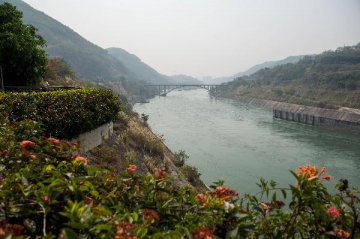The kingdom's growth relies heavily on garment and footwear exports, tourism, construction and real estate, and agriculture.
"While remaining strong, export performance eased slightly," World Bank senior country economist Sodeth Ly said during a press conference here on the launch of the bank's Cambodia Economic Update report.
"Bustling construction activity, however, continues," he added.
The report said garment and footwear exports, accounting for about 70 percent of total merchandise exports, grew at 17.7 percent in 2018, but eased slightly to 15.3 percent year-on-year in June 2019.
Bustling construction activity has continued, reflecting sustained appetite for investment. As a result, import growth of steel skyrocketed to 63.5 percent year-on-year in volume terms, up from 27.7 percent in 2018, it said.
The value of newly approved investment projects accelerated during the first half of 2019, the report said, adding that roughly 40 percent of foreign direct investment inflows came from China.
It said the tourism sector remained resilient, as international arrival growth accelerated to 11.2 percent year-on-year in June 2019 compared to 10.7 percent in 2018, with almost 40 percent of international arrivals coming from China.
According to the report, risks to the growth include heightened uncertainty over Cambodia's preferential access under the Everything But Arms (EBA) scheme to the European Union (EU) market, which accounts for about 40 percent of exports.
The EU started in February the 18-month process that could lead to the temporary suspension of Cambodia's duty-free trading access to the EU market under the EBA scheme due to concerns over human rights and labor rights.
Exports from Cambodia to the EU totaled 4.77 billion euros (5.3 billion U.S. dollars) last year, most of the products the kingdom sold to the EU were garment, footwear, travel goods, and rice.
If the EBA is stripped, tariffs on garment, footwear, and bicycle products will increase 12 percent, 16 percent and 10 percent, respectively, according to the World Bank.




















Latest comments